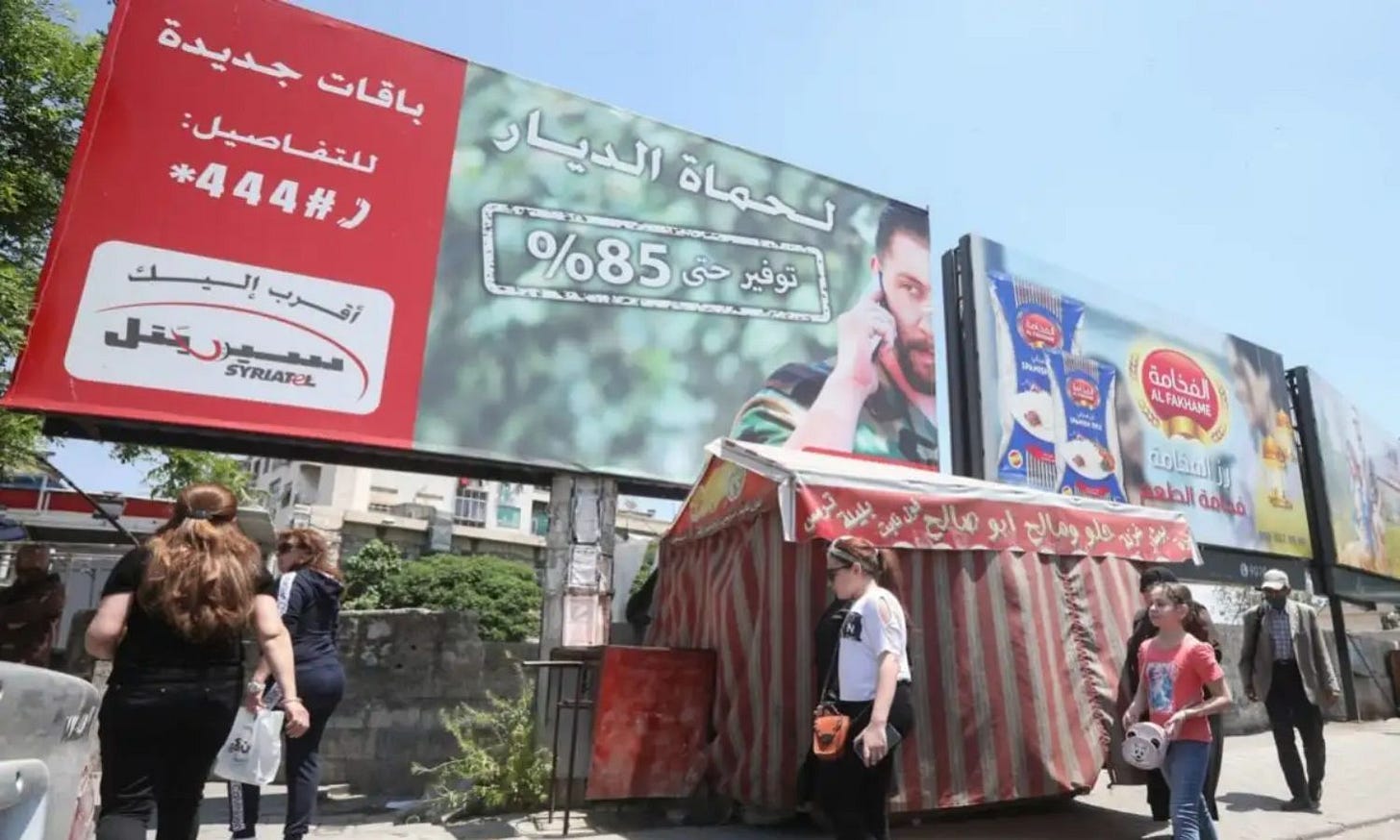Syria Sets Tech Landscape with 5G, Eyeing Foreign Investment
The inherited, damaged technological infrastructure renders the move largely symbolic for now.
On 6 May, Syria’s only two mobile operators, Syriatel and MTN, launched the country’s first pilot trial of a fifth-generation (5G) network in collaboration with the Ministry of Communications and Technology. Due to the lack of existing infrastructure, Syria is well-positioned to conduct such a trial and, in theory, could adopt the advanced network relatively quickly. However, the persistent unreliability of the country’s digital systems renders the move largely symbolic. Coinciding with Türkiye’s accelerated rebuilding efforts, alongside recent gas inflows from both Türkiye and Qatar, the 5G trial represents another symbolic step towards progress in the post-Assad era.
Starting from Scratch: Türkiye, Gulf Fund Development
Syria’s war-torn landscape, marked by damaged infrastructure and regular electricity outages, makes external funding crucial for reconstruction. The country represents a new, eager client for all, as well as a strategic location and ally for the future, especially as regional powers vie for regional gas hub status. Türkiye, Gulf states, and increasingly Europe have swiftly stepped forward to address this challenge. Most recently Ankara has pledged to supply Syria with 6 million cubic metres of natural gas daily via a pipeline from Kilis to Aleppo, a move inspired by Qatar’s earlier efforts. While the long-proposed Qatar-Türkiye pipeline isn’t imminent, it may be the fruit of this regional cooperation.
By providing much-needed energy, the aforementioned actors enable novel and creative initiatives, such as the new pilot trial of 5G. The absence of existing infrastructure offers Damascus a rare opportunity to bypass outdated systems and leapfrog directly to 5G — a potential advantage, as the lack of legacy systems or sunk costs places them in a strong position to adopt next-generation networks more rapidly.
However, the current lack of economic activity poses significant challenges to sustaining such a rollout. Syria lacks major data centres, significant technology firms, or robust data collection systems, and local capacity for data processing remains limited. Consequently, the 5G trial is largely symbolic, serving as both a test case and an aspirational goal. To realise the full benefits of 5G, substantial economic development must precede technological advancements, a process that will require time and sustained investment.
Tech Ties: Up for Grabs
If managed effectively, these efforts could deliver significant long-term benefits, positioning Syria as both a technological and strategic hub in the region. By combining energy supplies with targeted investments, Türkiye and its partners are laying the groundwork for Syria’s recovery.
However, the issue of sustainable funding remains unresolved. One possible scenario involves a major international actor providing substantial upfront investment in exchange for long-term rights — potentially over a 20-year horizon. It is possible that a European country may well step forward to provide support, particularly following al-Sharaa’s visit to Paris, the French contract to manage the Port of Latakia, and President Emmanuel Macron’s recent call for the European Union to comprehensively lift sanctions — a move that could trigger a broader domino effect across the West.
Such a reality would mark a great shift from the previously BRICS-dominated technological landscape in Assad’s Syria, enabling the EU to foster a digital environment that supports refugee repatriation and economic reintegration.





